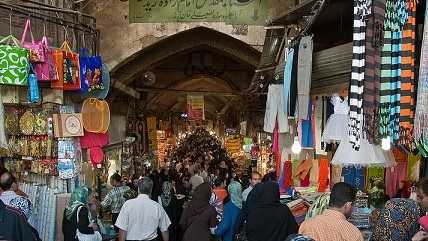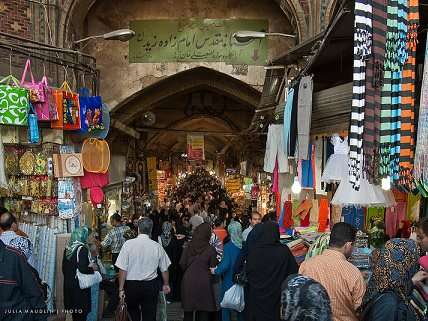Iran Deal Good for All the Economies?
Boons hoped for not just in Iran but around the world.


While Iran hawks in the U.S. are freaking out—Iran may soon be able to buy and sell conventional arms as freely as almost every other country in the world and to develop a purportedly peaceful nuclear program as a number of countries have done before it—the Iran deal announced today could have powerful positive effects on the economy not just of Iran but the rest of the world too.
Russia, and China, were the primary negotiators pushing to lift the arms embargo—they were widely perceived to be doing so in order to sell arms to Iran themselves, something Gulf Arab countries have not been keen on. But the U.S. has been working on billions of dollars of defense contracts for allies in the Middle East, specifically in preparation for a potential Iran deal.
But it's not just arms merchants expected to see more business in the wake of Iran deal. There are theoil companies of course. And a number of European companies, ranging from aerospace companies to tobacco and food and beverage concerns, are expected to be potential winners when Iranian markets open up in the next six months—this is largely because those companies had presences in Iran before sanctions forced them to suspend their business operations.
American firms, on the other hand, have been mostly prohibited from doing business in Iran since the Islamic revolution in 1979. It doesn't mean American companies don't have market penetration in Iran—Iran's consumers are familiar with products from firms like Apple and Phillip Morris because of a thriving smuggling network, and even with brands like Starbucks thanks to knock-offs.
Central planners, naturally, are worried about the effect permitting Iran to sell its oil on a global market will have on prices. Iran has the fourth largest crude oil reserves in the week. They extract 2.8 million barrels of oil per day and say they can increase their capacity by a million barrels a day over the next year.
Entrepreneurs in Iran caution that the lifting of sanction won't be an economic cure-all for Iran. The CEO of an Amazon-like company in Iran, said the biggest benefits will be access to foreign investment and new e-commerce technology. "This is not Russia in the 1990s," one banker told The Guardian. "Some people make it sound like a gold rush. There won't be one because there is already a free market and free trade here." For people who want to add value Iran is the place to be. It could be the best emerging market for years to come."
Those opposed to trade with Iran, of course, are free to choose not to trade with it. Lifting the sanctions means that political opposition won't place limits on the choices of others.


Show Comments (13)